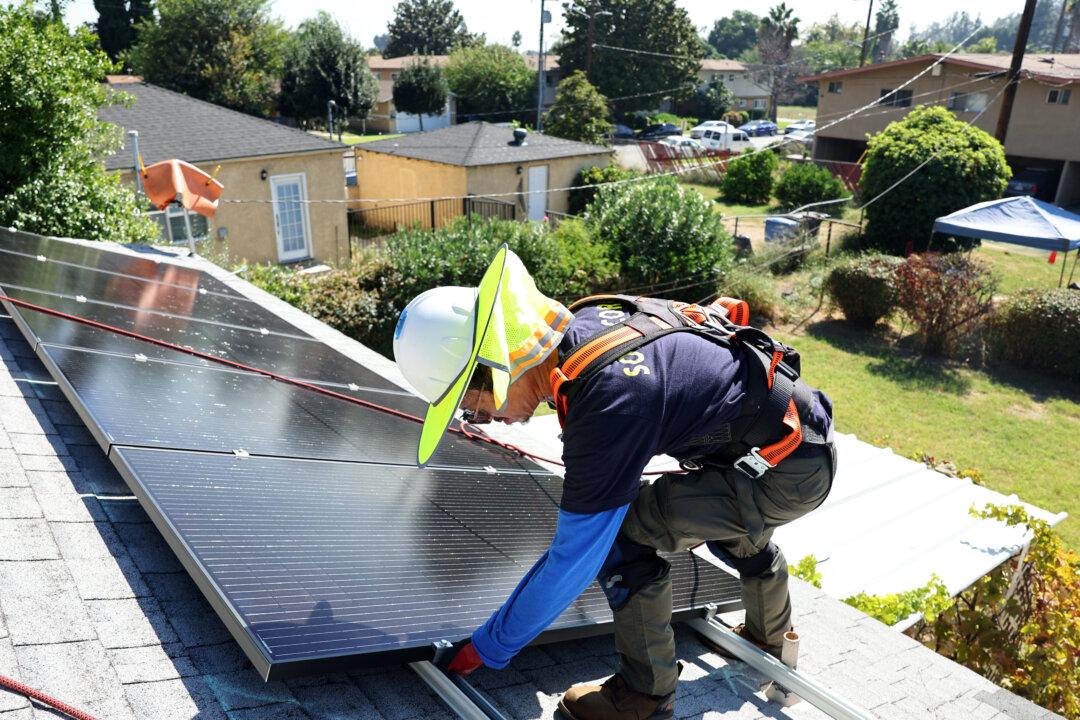Landfilling of used solar panels poses a “significant” pollution risk due to toxic chemicals potentially leaching into groundwater, a government document says.
To solve this issue, Global Affairs Canada is seeking a contractor who can present a cost-effective and environmentally friendly way to recycle solar panels, according to a July 23 notice on the government website.“Solar panels have valuable materials, including critical materials such as aluminum, tellurium, and antimony as well as gallium and indium in some thin-film modules, which are currently not being recycled once the panels reach their end of life,” said the notice posted by Global Affairs Canada.





